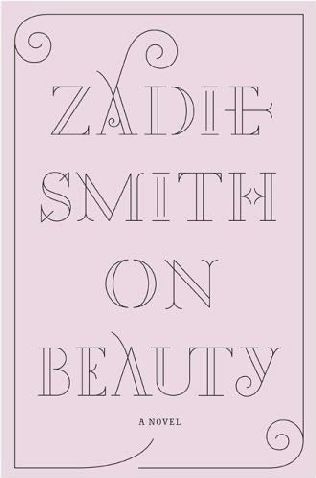 Zadie Smith on Art
Zadie Smith on ArtIn an interview Zadie Smith says that writers should not "hit their readers over the head" with their morals. The artist doesn't have to be a moral person, but a good work of art is honest and truthful in the artist's perception of the world. Because of self-deception, this is really difficult to convey in art--just as it is really difficult to comprehend in life. When writers berate you with their ideas, you feel as if you can't trust them. Instead, "good" artists will open a range of possibilities for the reader in order for the reader to see each and every side of the picture.
This is particularly relevant in the On Beauty because it deals with "The Culture Wars." On the right side, it is argued that students should study only the "greats" of the known canon. On the left side, it is argued that students should study multi-cultural works that do not necessarily fall into the category of "the greats" because all work can be seen as great.
Zadie Smith vs. 'Zadie Smith'
There is a difference between the real author and the person who has become an idolized bard. The left has done what the right does in tauting her as a "great" author. The 'me vs. them' has turned into an 'us vs. them.' So what is they right way to think about genius? If this book is "good art" it will offer multiple answers to this question, with multi-faceted characters on all sides of this argument. Delving into these deep characters offers an analogy for moral behavior in real life, and how we should develop real relationships.
In the novel...
Jerome is the bridge between his family (on the left) and the Kipps (on the right). The Belseys are Jerome's family, and they live in Wellington, Massachusetts. The mother(Kiki) and father(Howard) are fairly loose in their rules with children. The Kippses live in England and are a much more conservative family. They are pro-family, pro-busniess, and are practicing Christians. There is a rivalry between Monty Kipps and Howard Belsey. They are both professors of Renaissance art, and are both writing books about Rembrandt. Monty's book will hit the bestseller list, while Howard's book is still strewn about his study. Howard is searching for a way to prove that Rembrandt wasn't a great artist, while we can assume that Monty is working to prove the opposite. Jerome left to work for Monty over the summer. Perhaps he did it to get his father's attention, or perhaps he really wanted to learn a counter-idealogy to the one under which he has been brought up. Maybe he wants to get back at his father for having an affair; or maybe he's just constitionally different from the rest of his family. (People are their own people, after all). Either way, when Jerome comes back from England, he realizes that he has fallen in love with the Kipps family.
No comments:
Post a Comment